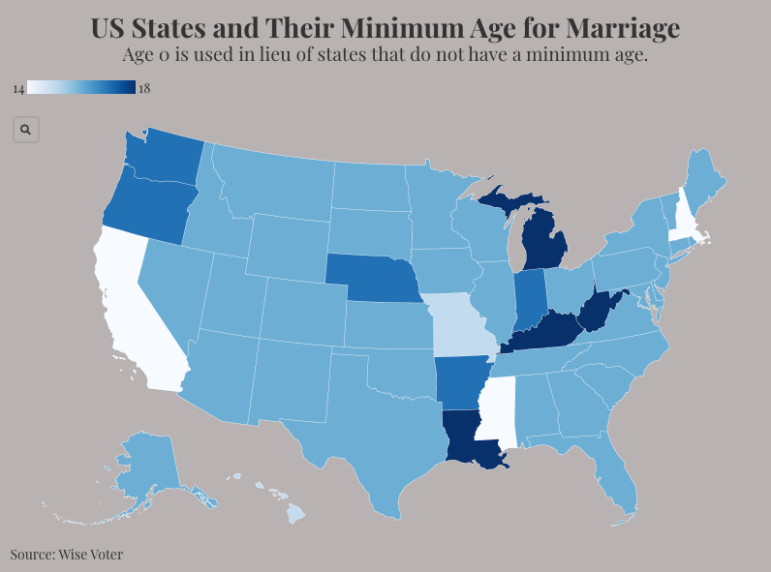In a historic move, Gov. Gretchen Whitmer signed a bill, HB 4302, aimed at safeguarding the well-being of minors in Michigan by raising the minimum age of consent for marriage to 18. This action not only represents a continuation of Whitmer’s previous initiatives signed into law in early 2023, but also positions Michigan as a progressive leader, making it the tenth state in the United States to officially eliminate child marriage.
Before the bill, the legal age to get married in Michigan was 16 with parental consent. The bill was first introduced on March 16, 2023, and passed on Sep. 26.
The other nine states that have a ban on underage marriage with no exceptions are Delaware, New Jersey, Pennsylvania, Minnesota, Rhode Island, New York, Massachusetts, Vermont and Connecticut.
“I am committed to keeping Michiganders – especially young women – safe and healthy, and today’s bipartisan bill fully implements Michigan’s ban on child marriage,” Whitmer said in a press release. “As governor, I have proudly signed legislation to keep young people safe and protect sexual assault survivors.”
HB 4302 modifies various parts of the Michigan Penal Code to veto any reference to a spouse younger than 16, bringing the code in line with legislation banning child marriage in Michigan.
Joey Andrews (D-MI) is a Michigan rep. in his first term and supports the HB 4302 bill. Other bills that Andrews supports include backing labor unions, ombudsman for public employees and making sure companies practice fair employment.
“Protecting children is paramount to me, both as a legislator and a father,” Andrews said in a press release. “My colleagues and I have demonstrated that with the bills we’ve passed this term keeping kids safe is a critical issue, and I’m proud to be part of that effort by sponsoring this bill.”
Sheila Blair, the President of the American Association of University Women of Michigan (AAUW of Michigan), is a firm supporter of Whitmer’s bill. Her personal experiences and work with AAUW of Michigan have forwarded her desire to advocate for women’s rights and underage girls’ rights. As a citizen of Michigan and continuously working on these issues, she realizes what the impact of the bill will do to the communities in Michigan.
“Michigan’s former law permitted child marriage with one parent’s permission or if younger than 16, a judge’s approval. Both exceptions created conditions that make educational achievement, satisfying future domestic lives, and economic independence less likely, especially for girls,” Blair said. “In this century, over 5,400 children were married in Michigan, some as young as 14. 95% were girls wed to adult men an average of 4.3 years older. Girls represent 86% of the minor children who are married in the United States. These new laws will bring girls increased educational and economic opportunities.”
Courtney Kosnik, survivor and advocate of fighting to ban underage marriage, was married in 1993 when she was 16 years old. She was, as she said, “trapped in [the] marriage” for 23 years but later got out of it and began advocating for marriage rights. As a resident of Michigan, her life was affected by underage marriage and she knows the effects it has on young people – especially women.
“Thirty years after my own life as a high school girl was cut short, I am proud to see Michigan become the tenth state to ban child marriage,” Kosnik said. “The rights of children are not for sale, and the outdated and misguided practice of child marriage will not be tolerated any longer in Michigan. We are not done, and we will fight on to keep children safe from marriage under the age of adulthood.”
The graph below shows all 50 states and their minimum marriage age. You can view the full graph here.
